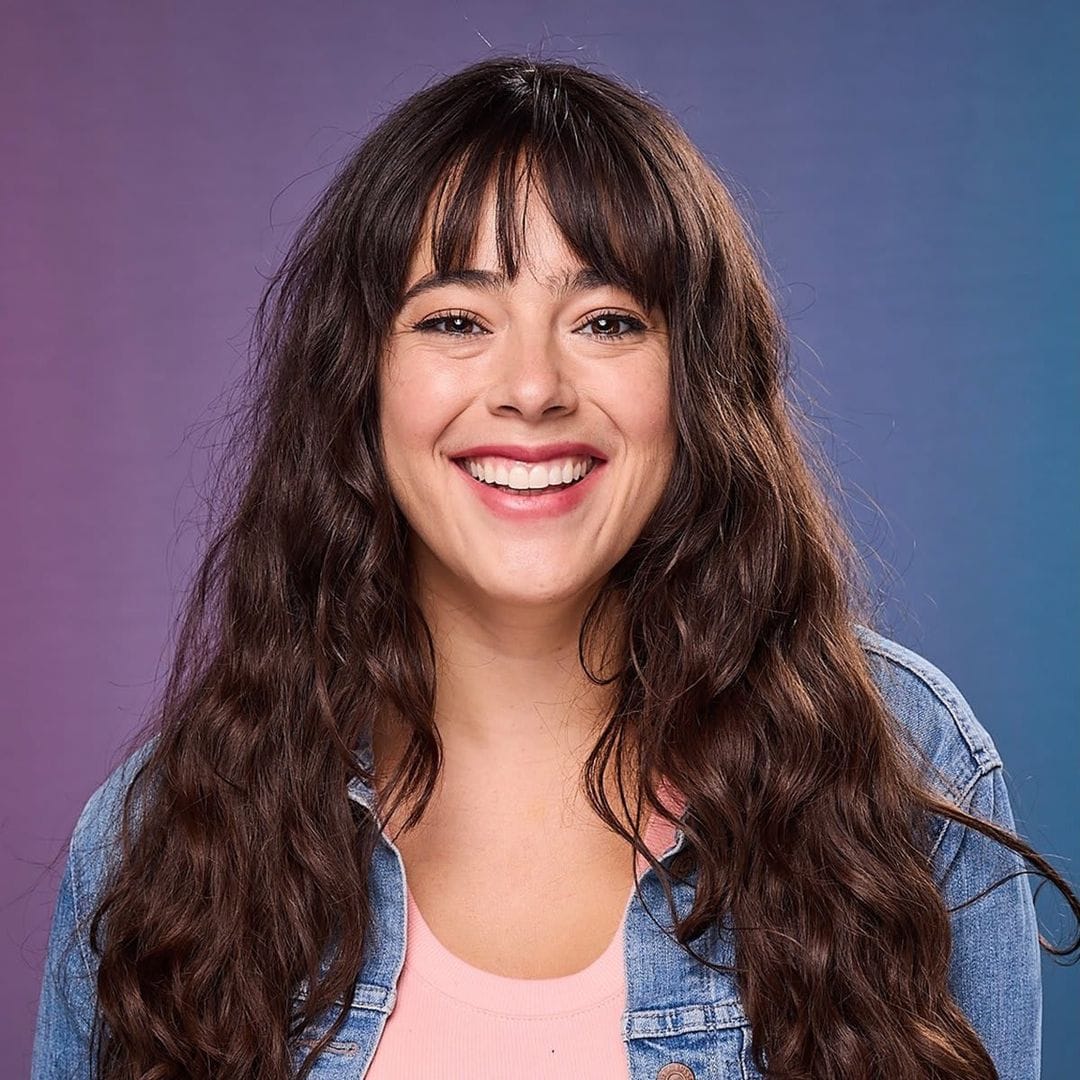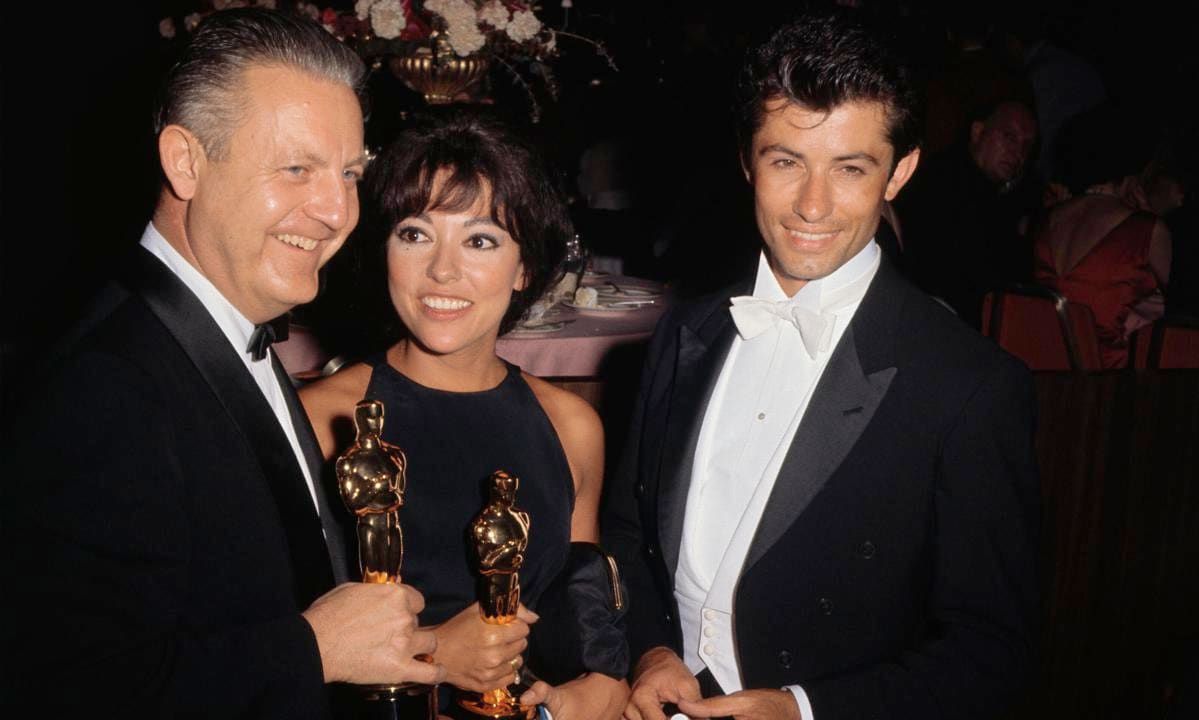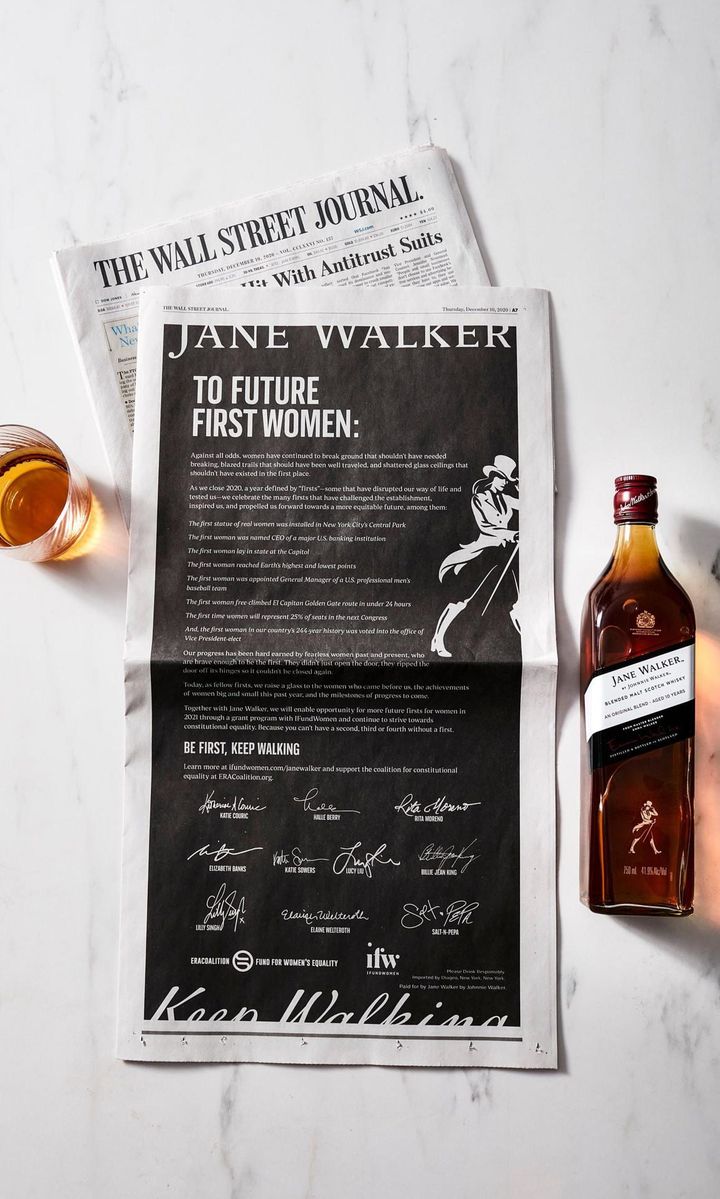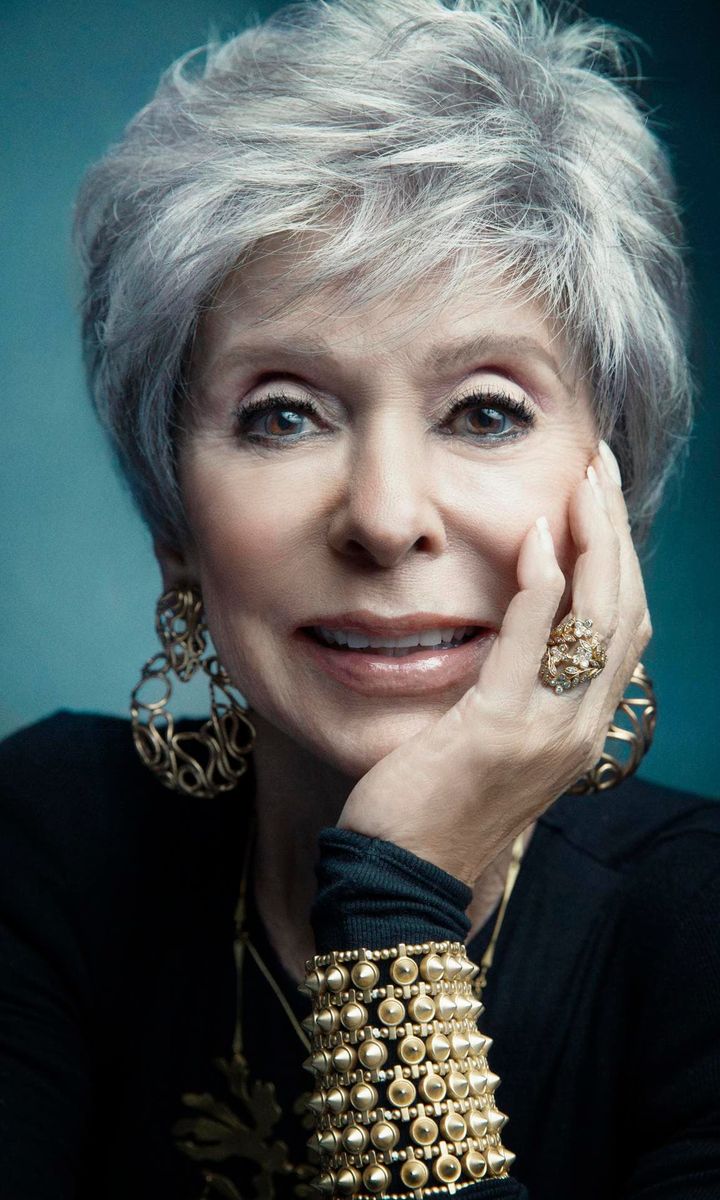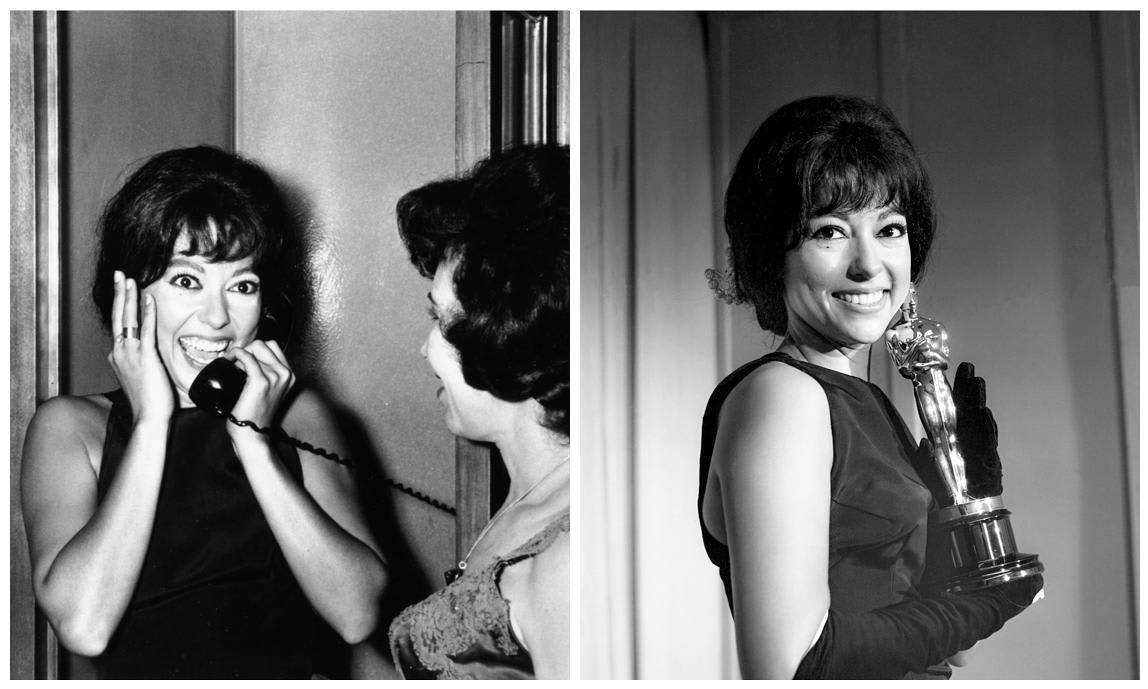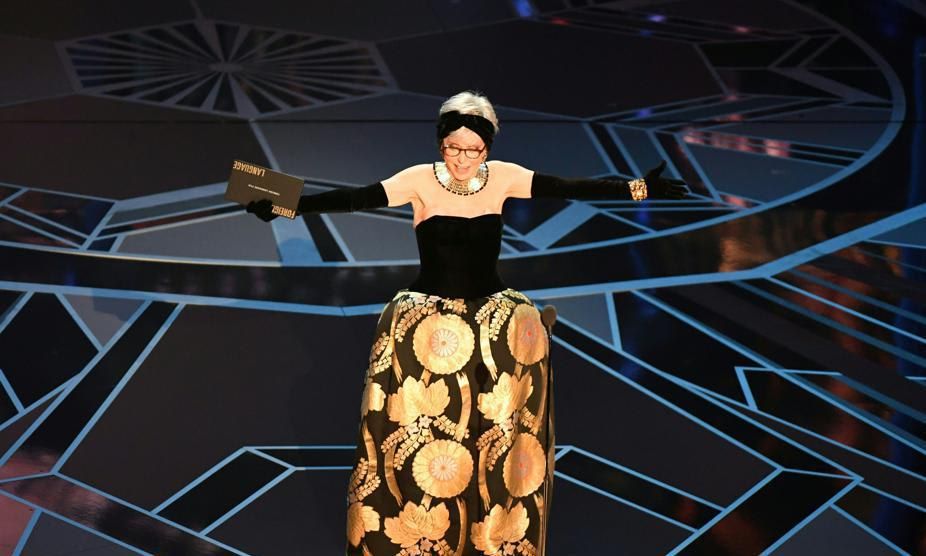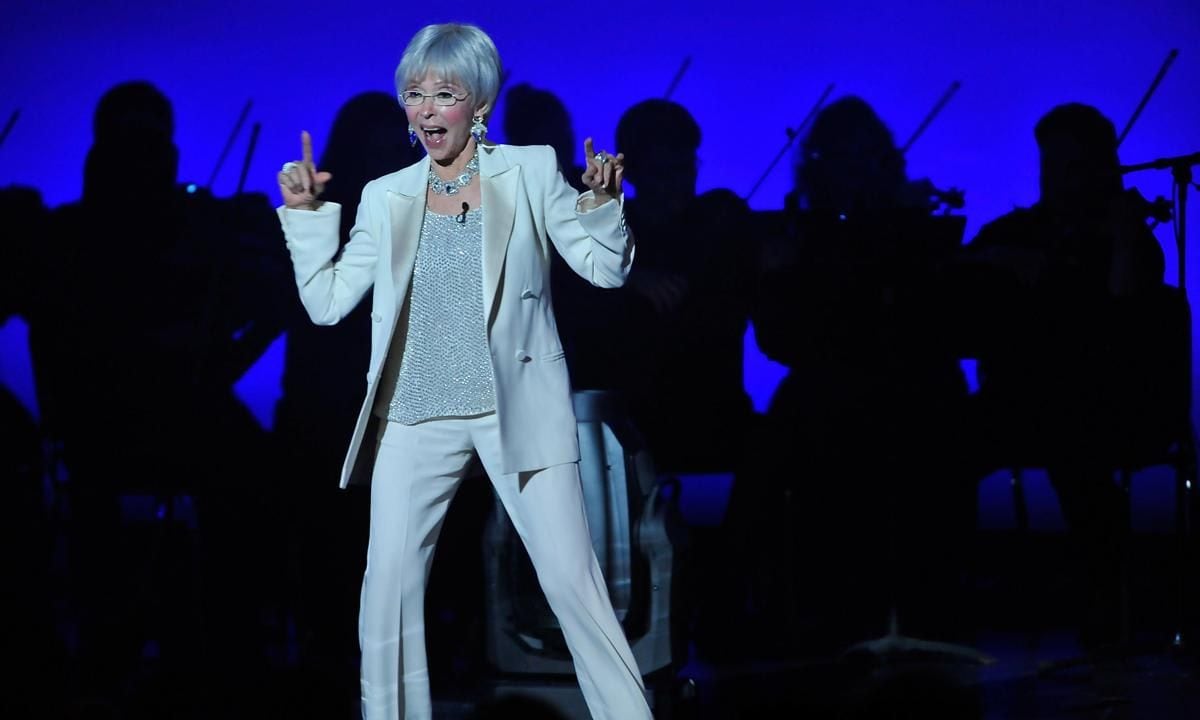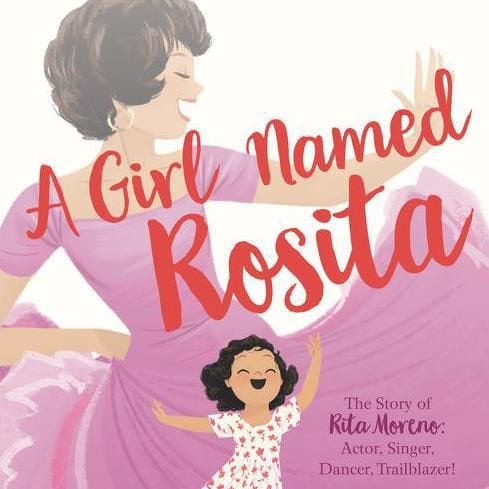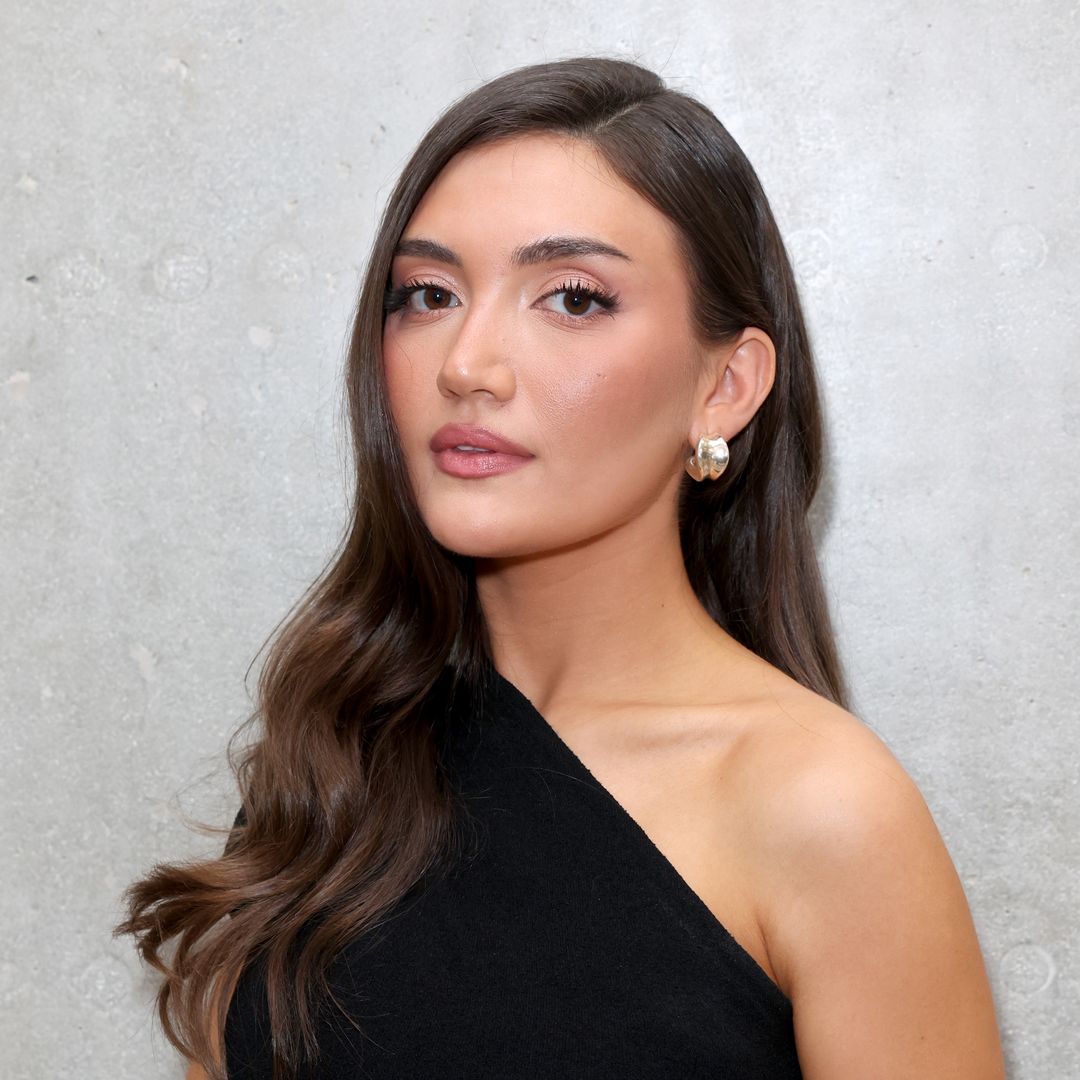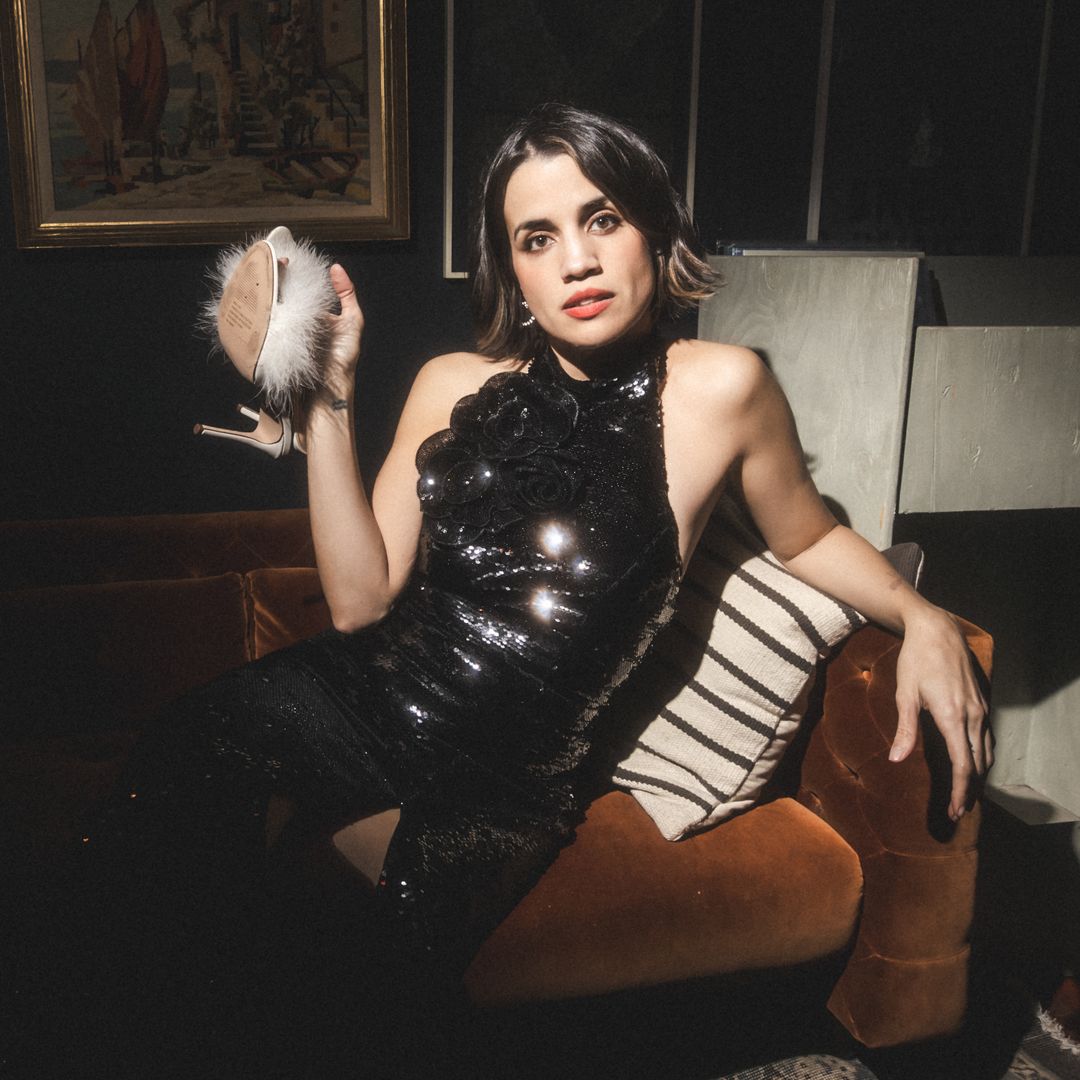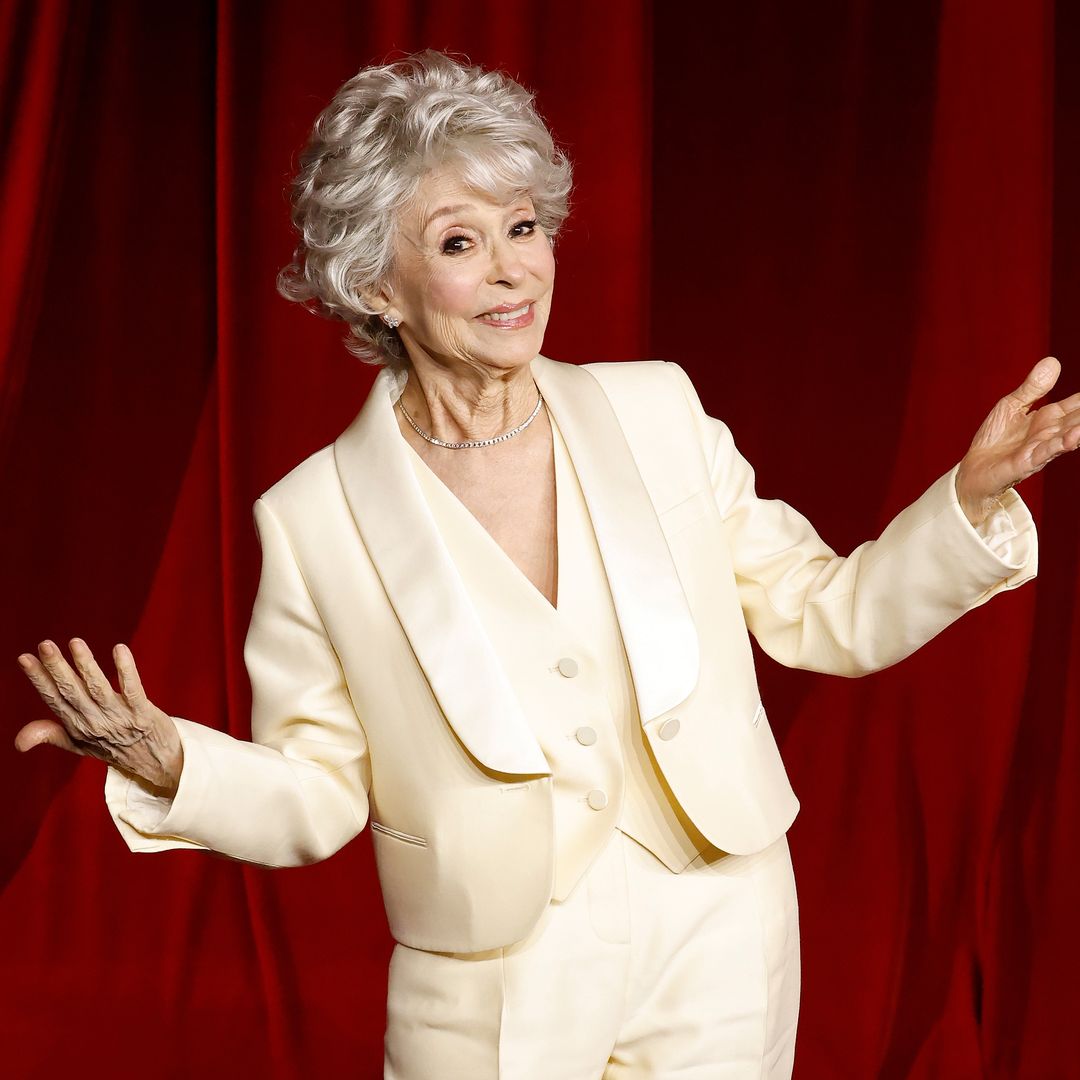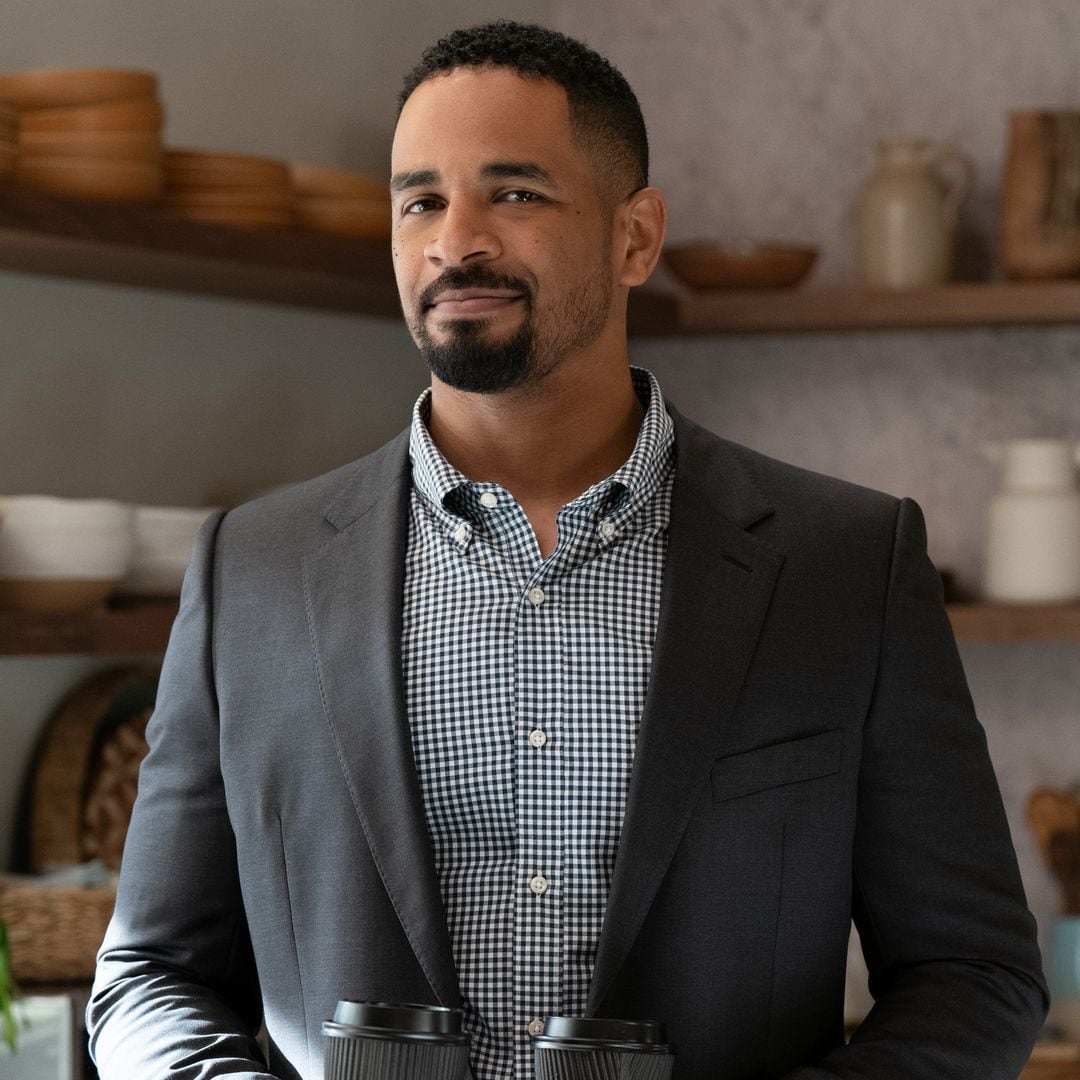Rita Moreno turned 89 year old last week and if you ask her how it feels, she’ll tell you it feels like 88. The legendary actress is the first Latina woman (and the second woman overall) to win an Oscar, an Emmy, a Tony, and a Grammy- making her an EGOT and the last living performer to have done so.
She was born Rosita Dolores Alverío in Humacao Puerto Rico on December 11, 1931 to seamstress Rosa María and farmer Francisco José “Paco” Alverío. But she will be the first to tell you she was only born in a hospital there. Moreno begins her self titled memoir with, “My journey begins on December 11, 1931, in Juncos, Puerto Rico. Humacao ‘claims’ me now because I became famous…but sorry, Humacao, I am not from you—I was only born in a hospital there. From Humacao, swaddled, I was carried by my mother—my pretty dark-haired mother, Rosa Maria, who was then only seventeen—back to her village, back to Juncos.”
After moving to New York City with her mother at the age of 6, Moreno began dancing lessons and landed her first Broadway role by the time she was 13. She has since starred in more than 40 feature films, and countless television shows. She landed her iconic role of Anita in the remake of the groundbreaking Broadway musical West Side Story in 1961. She went on to win the Academy Award for Best Supporting Actressfor the film in 1962. And that’s just a small piece of her beautiful story.
On December 10th on Human Rights Day, Jane Walker by Johnnie Walker announced its new “First Women” campaign to celebrate women breaking boundaries and to inspire and support others on their journey. The campaign issued an open letter to celebrate those moments and the continued journey for equality with the ERA Coalition and its Fund for Women’s Equality. The letter was signed by remarkable women who have achieved history-making firsts which included women like Halle Berry, Elizabeth Banks, Salt-N-Pepa, Katie Couric, and of course, Moreno.
As part of the First Women campaign, Jane Walker and IFundWomen teamed up to help create more opportunities for women and are selecting 15 women-owned businesses for a grant. You can apply for the grant here. Moreno will be selecting one of the 15 businesses that receive a grant.
HOLA! USA had the opportunity to speak with Moreno about the campaign and she shared some truly inspiring stories. Find out the advice Moreno would give to her younger self, what equality means to her, and what it was like in the barrio when she won the Oscar.
“I’ll tell you exactly what advice I would give to a younger me. I would say, stop feeling like you don‘t deserve anything. You have value. Whatever it is that you are has value and worth.”
HOLA! USA: Thank you so much for meeting with me, I am really excited about this interview. I think it‘s amazing that you are part of this list of women for the Jane Walker by Johnnie Walker First Women campaign.
Moreno: You know what? I think it‘s amazing too (she laughs) I’m delighted and honored that they have chosen me as one of what they call the ‘women of first’ and I think it’s a marvelous project. I mean can you imagine, I’m now as of yesterday 89 years old, can you imagine anything like a project like this in my time when I was younger? Not possible. Nobody cared, nobody was interested and I think it’s really pretty fabulous that this company Johnnie Walker has decided to do something like this. I feel very honored to be a part of it, especially with the women they have chosen.
HOLA! USA: Yes it’s an amazing list and I think it’s inspiring to be reminded of all these open doors. So let‘s talk a little bit about your career and how you just continue to achieve success at 89, you’re amazing.
Moreno: Isn’t that amazing? (laughs) I’ve been getting calls from friends and all that and- oh my god the Johnny Walker people sent me the most incredible bouquet of flowers that I have ever seen in my life, I mean really gorgeous. And I just can’t believe it, I am 89. I don‘t know what it feels like to be 89 except it feels like me. Being very happy and alert and todavía llena de cayenne pepper. You know somebody said to me yesterday, “so what’s it feel like to be 89?” And I said, “you know what? it feels like being 88.” It feels the same, I am here and it seems to get better for me which is amazing. I wish my mom were alive. Oh my God how I wish she were alive through all of these honors that I’m getting and all this wonderful stuff.
HOLA! USA: Aw well, I‘m sure she’s still around you and watching you.
Moreno: And you know she’s the one I miss the most. I really really miss her because of all of these wonderful things that have happened to me- that is happening to me. I think she just would have been astonished. Even at the end right before she passed away she was so impressed by my career and what had happened to me. She was almost- I think she had trouble believing that her little girl was having all these wonderful things happen to her. Because she always thought in that sort of Puerto Rican way: “¿Pero cómo esto? ¿cómo pasó esto? Mi niñita!” You know?
HOLA! USA: Yeah, that‘s beautiful and I lost my mom too so I really appreciate your words. I find a lot of comfort knowing that she must be watching us somewhere and feeling us. So I totally believe your mom is watching you like, “wow look at her now, 89 and still being amazing, my beautiful daughter.”
Moreno: Aw yeah, that‘s a lovely thought. I hope so. I hope she’s out there somewhere in the ether going ‘wow.’ And I love this thought that she might be saying, “I told you” to all of the other saints. “I told you.” (We laugh, I hold back a tear.)
HOLA! USA: So what does equality mean to you? You‘ve watched the United States change over time and it’s obviously still going through a lot of stuff but I feel like we’ve really made some huge progress.
Moreno: I think we’ve made some astonishing strides and I think maybe it started with the ‘me too’ movement. What’s extraordinary is that all of that has really encouraged women to speak up for themselves. That to me is so thrilling, I mean we are never going back again. I know this, I absolutely know this. And what equality to me means is really very simple- equality means having the freedom to be who you are without accommodating somebody else’s idea of what is a woman. It’s so wonderful that women are beginning to have the courage, especially young women. For us older folks it’s still difficult, I still find myself in ways that are kind of old-fashioned or reticent. Because you know somewhere in the back of your mind you’re thinking, “well I don’t know if I should ask for this” just because you’re a woman, and the newer part of me is thinking, “oh stop that, that’s bullshit.” Here is another big thing I learned, this to me is very very important- it’s alright for certain groups of people not to like you. You know, who don’t believe what you believe, or who are being adamant about what they think is a woman. Now we really have permission to say “this is what I am. if you don’t like it, I’m sad about it and I’m sad but I’m not sorry. This is who I am. That changed a lot for me.
HOLA! USA: That‘s beautiful. What would you say to a younger Rita and to all the other aspiring journalists, actresses? I mean you’re talking to me right now and I have a lot of big dreams. So what advice would you give to yourself and to people like you?
Moreno: I’ll tell you exactly what advice I would give to a younger me. I would say, “stop feeling like you don‘t deserve anything. You have value. Whatever it is that you are has value and worth.” Because when I was a younger person -much younger- what really stood in my way was feeling like I was not worthy because I was a Puerto Riquena, and that went a really long way into retarding my successes. I had to end up having counseling to help me understand that everybody, everybody, everybody has value. I think it stopped me from moving ahead. I understand now that if you are brought up in a new way- which would be new for someone like my mom- you grow up feeling that you have value and that who you are is important and it has worth. So it has a great deal to do with how you are brought up. My mom was brought up believing she was just a Puerto Riqueno. That’s it, nothing very valuable. And it’s heartbreaking, just heartbreaking how so many young women and young girls went around feeling like, “well my opinion doesn’t matter very much because nobody listens” and now a lot of people are listening. Some people may not like what they hear, but they are listening and that’s extremely important. That makes a project like the Johnnie Walker/Jane Walker project have so much weight and such importance. I have to say I am really really thrilled right to my bones that I was chosen by them as one of the first women. There are many of us, that’s what a lot of people don’t understand. There are many of us. So to be in a group of women that have accomplished so much is beyond thrilling.
HOLA! USA: How did it feel to accomplish that? You were the first Latina woman to ever win an EGOT so take us back to that moment when you realized, “oh wow I am the first latina woman to have done that.” What did that feel like?
Moreno: I’ll tell you a wonderful story that answers that question directly. It was the Oscar! And not just the Oscar but the Golden Globe, a lot of people forget that I got the Golden Globe for Westside Story. But I‘ll tell you this marvelous story that this actress told me about myself. It was Oscar night in el barrio and she was living there at the time and she said normally the barrio was a very noisy place. Because we are raucous, I am a raucous woman, I mean there’s no question- I laugh loud, I cry loud, I am Latina down to my bone. And on Oscar night, the barrio as usual it was a very hot night she said. And all the windows were open in the barrio and all the TV sets were tuned into the Oscars- of course, because I had been nominated. So it was a very very interesting experience for the Latino Community and also el barrio, and in Puerto Rico it was a big deal. And at the time I didn’t realize I had such a following with my people mostly because in those times the Latino community didn’t write fan mail. It was not a part of our living, part of our community, that’s not something we did. Not because we didn’t care, we cared a lot. But people would say “I don’t know how to write a letter” and forgot about it and didn’t. So I was not in touch with just how much of a community I had out there, that’s what makes this story so moving to me. So my friend says to me, as usual, everyone had the window open. It was very hot, most of us didn’t have air conditioning I mean who could afford that? Everyones talking, listening to the Oscars now and then while it was on TV. And then when my category came up my friend said, “it’s like everybody suddenly lost their voices.” She said, “el barrio was dead silent.” And Rock Hudson is announcing the nominees and she said, “you literally could hear a pin drop in el barrio” which is almost impossible to conceive of. And when he announced my name she said those people were screaming and yelling “se lo gano” she said they were yelling out the windows to each other and literally celebrating like “she did she did it” and in a way, it was like they were saying “we did it, we did it.” And when she told me this story I just began to cry. I began to cry because at this time I had no idea there were people outside of my mom and my family celebrating. I had no idea. She told me also that a friend of hers was living in Puerto Rico at the time and she said that little island exploded. Isn’t that marvelous?
HOLA! USA: Yeah, it‘s a beautiful story, it gave me the chills.
Moreno: Oh, I‘m telling you it’s the first time I can tell that story without tears in my eyes. Because you don’t know how important that is, that recognition by people who are not Latinos. It is like you suddenly found this kind of acceptance that you never dreamed of, because I didn’t think I was gonna win. Because Judy Garland was up for a movie called Judgment at Nuremberg and I thought for sure that she would get it, just because she was Judy Garland. And when my name was called out, my mom was in the back of me and if you look at YouTube when my name is called there is a woman in the back of me who grabs me, and that’s my mommy.
HOLA! USA: Aw! I Am going to find it, I‘ll put it in the article.
Moreno: I also remember that as I walked down the aisle to the stage I said to myself, “don‘t run, don’t run. It’s not dignified, don’t you dare run.” Because very often in the past people who won the Oscar would run to the stage in fear that the applause would stop. That’s why they would run and I said to myself “if the applause stops, it stops, but don’t you dare run, you have dignity. and that’s what I did- I didn’t run. I took quick little steps, but the applause never stopped because it just turned out that West Side Story was a hugely popular film and a lot of people voted for it in that audience. Isn’t that an amazing story?
HOLA! USA: It’s such an amazing story. Thank you so much for sharing it with me
Moreno: And, it made me a first.
As much as I wanted to keep talking to Rita, we had already gone a few minutes overtime and I thanked her for sharing her stories with me. Before we got off the phone, Rita stopped me to tell me about a beautiful new children’s book she received in the mail that was made about her life called ‘A Girl Named Rosita.’ “It is so beautiful, I want you to look at it okay? It didn‘t miss one thing- including the bad stuff you know and the sad stuff. Get it and look at it.” Moreno explained.
Moreno co-stars in the critically acclaimed latinx reimagining of One Day At A Time, which is currently on Netflixand CBS All Access. She also co-stars and serves as an Executive Producer in the Steven Spielberg remake of West Side Story, scheduled for a 2021 December release. A documentary about Moreno’s life titled Rita Moreno: Just a Girl Who Decided to Go for It will premiere January 29 during the 2021 Sundance Film Festival. Directed by Mariem Pérez Riera, “the film chronicles Moreno from her early years in Puerto Rico through her childhood as an immigrant in New York City and the racial bias she faced in the studio system, while breaking down barriers and overcoming sexism and identity discrimination with integrity.”
,type=downsize)
